
24 July – 29 August
After the turbulence erupting from the drama team – Peter Stein’s successor Ivan Nagel was engaged for only one season – Frank Baumbauer took over the department as artistic consultant and brought out the German-language première of the Shakespeare adaptation Schlachten by Tom Lanoye and Luk Perceval on the Perner-Insel.
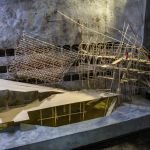
24 July – 30 August
In 1992, Saint François d’Assise by Olivier Messiaen celebrated its first performance under Esa-Pekka Salonen as conductor and Peter Sellars as director. Although the production aroused controversy at the time, it went down in the history of critical reception as one of the most important productions and to the present day has always stood for the Festival’s programmatic new start.
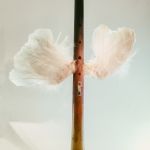
20 July – 31 August
Despite Peter Stein’s successes and his benchmark works, not least in Alban Berg’s Wozzeck in the Easter Festival production with Claudio Abbado, Gerard Mortier found it was time for a more innovative theatre. The head of drama Peter Stein took his farewell with Grillparzer’s Libussa in 1997.
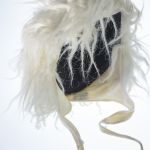
20 July – 31 August
Peter Stein’s era saw a strong accentuation of straight drama productions; he scouted for unconventional venues, just as Max Reinhardt had before him. His productions on the new stage of the Perner-Insel were just as successful as in the Felsenreitschule/Summer Riding School.
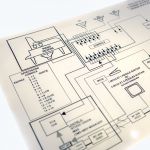
21 July – 31 August
In the year Austria joined the European Community, Helga Rabl-Stadler was inaugurated as Festival President; the Salzburg Festival celebrated its 75th anniversary with the new Jedermann/Everyman Gert Voss and a new production of Mozart’s Le nozze di Figaro with Nikolaus Harnoncourt as music director and Luc Bondy as stage director.
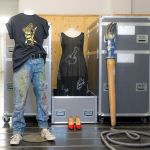
25 July – 31 August
1994 saw a Stravinsky feast at the Festival: Sylvain Cambreling – the busiest conductor under Mortier – along with Peter Mussbach and Jörg Immendorff brought out a new production of The Rake’s Progress.
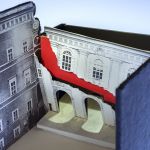
24 July – 30 August
Two operas by Claudio Monteverdi were scheduled for the 350th anniversary of his death: Nikolaus Harnoncourt and Jürgen Flimm adapted L’incoronazione di Poppea. René Jacobs and Herbert Wernicke produced L’Orfeo.
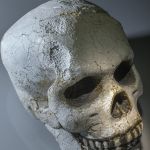
26 July – 30 August
Gerard Mortier’s decision to put on Leoš Janáček’s Aus einem Totenhaus at the start of his directorship may be regarded as programmatic. This gut-wrenching work in Klaus Michael Grüber’s and Claudio Abbado’s interpretation put its finger on the pulse of the time.
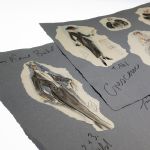
26 July – 31 August
The programme of the last interim season was planned under the aegis of the bicentenary of Mozart’s death and the performance of his seven great operas, most notably including revivals and a new production of Die Zauberflöte/The Magic Flute, with Georg Solti on the rostrum and Johannes Schaaf directing.
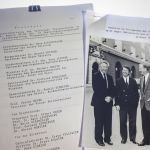
26 July – 31 August
After the leading team from 1991 on – Gerard Mortier, Hans Landesmann and Heinrich Wiesmüller – had been presented, the Artistic Director announced his plans in detail in spring 1990: besides the schedule for the first season of 1992 also the cooperation with the Salzburg Mozarteum Foundation, the extension of the repertoire to new venues, the integration of sponsors and so forth.
1990s
With his appointment as Artistic Director, on 1 September 1991 the Belgian opera director (Intendant) Gerard Mortier took over the legacy of Herbert von Karajan. The ‘new Salzburg’ proclaimed by Mortier pursued a policy of openness: towards a broader and more modern repertoire, to contemporary and also in part provocative perspectives, to different and younger sections of the audience. The number of new productions increased, and a troupe of new stage directors arrived at the scene. Herbert Wernicke, Karl-Ernst Herrmann, Peter Mussbach, Hans Neuenfels, Luc Bondy, Peter Sellars, Robert Wilson and Christoph Marthaler placed their stamp on the aesthetic of the Mortier era.
Nor did the contentious Artistic Director shy before disputes with a fair number of institutions – the Vienna Philharmonic Orchestra, the circus of stars, the money nobility, the omnipresent record industry – and he became the target of conservative critique. Mortier was a man who joined in political discussions with articulate bravura and opened up the Festival ‘to be a place of new horizons and confrontation’.
Although only two opera world premières were performed while he was Artistic Director, consistent fostering of the 20th-century repertoire defined the programme as a whole. A Janáček cycle, Messiaen’s Saint François d’Assise, Ligeti’s Le Grand Macabre, also operas by Stravinsky, Schoenberg, Berg, Weill and Busoni were milestones in the regenerated programme. Straight drama stepped up in status through the work of Peter Stein. With his cycle of Shakespeare’s Roman plays he furthermore won the Felsenreitschule/Summer Riding School for drama again; meanwhile he conquered the Perner-Insel in Hallein as Festival venue. The concert repertoire under Hans Landesmann included much-appraised cycles notable for their thematically cohesive concepts. In 1998, the previous Whitsun concerts conceived by Karajan were transformed under Landesmann’s direction into a Baroque Festival and integrated into the Festival structure. As of 1993, the avant-garde oriented Zeitfluss Festival directed by Markus Hinterhäuser and Tomas Zierhofer-Kin was an enrichment for the Salzburg Festival.
With effect from 1990, new paths were also taken in the financing department. For the first time, sponsorship contracts were concluded with ABB, Allianz and Nestlé. In 1995, the Ingolstadt automobile company of Audi, and also Nestlé, became main sponsors. Siemens joined them in 1999 as third main sponsor. And there were also private patrons, including Alberto Vilar and Betty Freeman, and also the Association of Friends and Patrons who assured the artistic quality and diversity of the Festival.
In 1994, Helga Rabl-Stadler was newly appointed to the Board of Directors; in January 1995, she followed Heinrich Wiesmüller as Festival President and continues to guide the Festival in this role today. In 1996, Mortier and Landesmann extended their contracts until autumn 2001. By the end of the decade – marked by the Yugoslav wars and global reordering after the end of the Cold War – a selection committee was set up again to scout for their successors.
